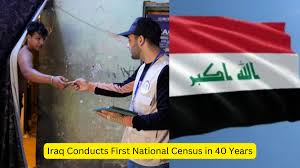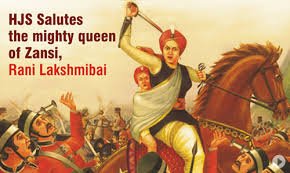District of Rajasthan with the Lowest Literacy Rate
Overview of Literacy Rates in Rajasthan
In a recent survey, the district of Barmer in Rajasthan has been identified as having the lowest literacy rate in the state. This report highlights significant disparities in educational attainment across different regions of Rajasthan, emphasizing the urgent need for targeted educational interventions.
Current Literacy Statistics
Barmer’s literacy rate stands at a mere 51.5%, which is considerably below the state average of 78.7%. This stark contrast underscores the challenges faced by the region in promoting educational access and quality. The low literacy rate in Barmer is attributed to several factors, including socio-economic conditions, geographical remoteness, and limited educational infrastructure.
Government Initiatives and Responses
In response to this issue, the Rajasthan government has launched several initiatives aimed at improving literacy rates in Barmer. These include increasing funding for schools, implementing adult education programs, and enhancing community outreach efforts. Additionally, NGOs and local organizations are collaborating with the government to provide additional resources and support to underprivileged communities in the district.
Challenges and Opportunities
Despite these efforts, Barmer continues to face challenges such as inadequate school facilities, lack of qualified teachers, and socio-cultural barriers that hinder educational progress. However, there are also opportunities for improvement through increased investment in education and community engagement. Addressing these challenges effectively could lead to significant advancements in literacy rates and overall educational outcomes in the district.

Why This News is Important
Addressing Educational Disparities
The identification of Barmer as the district with the lowest literacy rate in Rajasthan highlights critical educational disparities within the state. Understanding these disparities is crucial for developing targeted policies and programs that address the unique needs of underperforming regions.
Informing Policy Decisions
This news serves as an important indicator for policymakers to prioritize educational reforms in areas with the greatest need. By focusing on regions like Barmer, the government can allocate resources more effectively and implement strategies that are tailored to the specific challenges faced by these districts.
Promoting Educational Equity
Highlighting the literacy challenges in Barmer brings attention to the broader issue of educational equity. Ensuring that all districts, regardless of their socio-economic status, have access to quality education is essential for achieving long-term sustainable development and reducing inequalities.
Enhancing Public Awareness
This news also raises public awareness about the importance of education in socio-economic development. By shedding light on regions with low literacy rates, it encourages community involvement and support for educational initiatives, which can drive collective efforts to improve literacy outcomes.
Encouraging Community Engagement
The focus on Barmer’s literacy issues can galvanize local communities to actively participate in educational programs and advocacy. Community engagement is vital for creating a supportive environment that fosters learning and development, particularly in underserved areas.
Historical Context
Background of Literacy in Rajasthan
Rajasthan, known for its rich cultural heritage, has historically faced challenges in education due to its vast geographic expanse and diverse population. Literacy rates in the state have varied significantly across districts, with rural and remote areas often lagging behind urban centers.
Educational Reforms and Efforts
Over the years, the Rajasthan government has implemented various educational reforms aimed at improving literacy rates across the state. These include the establishment of new schools, introduction of educational schemes like the Mid-Day Meal Scheme, and efforts to increase female literacy.
Recent Developments
In recent years, the state has focused on addressing educational disparities through initiatives like the Rajasthan School Education Project and collaborations with NGOs. Despite these efforts, certain districts, including Barmer, continue to face significant challenges in achieving educational equity.
5 Key Takeaways from the District of Rajasthan with the Lowest Literacy Rate
| Serial Number | Key Takeaway |
|---|---|
| 1 | Barmer district has the lowest literacy rate in Rajasthan at 51.5%. |
| 2 | The state’s average literacy rate is 78.7%, highlighting significant disparities. |
| 3 | Government initiatives are in place to improve literacy rates in Barmer. |
| 4 | Challenges include inadequate school facilities and socio-cultural barriers. |
| 5 | Increased community involvement and investment in education are crucial for improvement. |
Important FAQs for Students from this News
1. What is the literacy rate of Barmer district in Rajasthan?
The literacy rate of Barmer district is 51.5%, which is the lowest in Rajasthan.
2. How does Barmer’s literacy rate compare to the state average?
Barmer’s literacy rate of 51.5% is significantly below the Rajasthan state average of 78.7%.
3. What steps is the Rajasthan government taking to address the low literacy rate in Barmer?
The government has launched initiatives such as increasing school funding, implementing adult education programs, and enhancing community outreach efforts.
4. What are some of the challenges faced by Barmer in improving its literacy rate?
Challenges include inadequate school facilities, lack of qualified teachers, socio-economic conditions, and cultural barriers.
5. Why is it important to focus on improving literacy rates in districts like Barmer?
Improving literacy rates in districts like Barmer is crucial for addressing educational disparities, promoting equity, and fostering socio-economic development.
Some Important Current Affairs Links

















